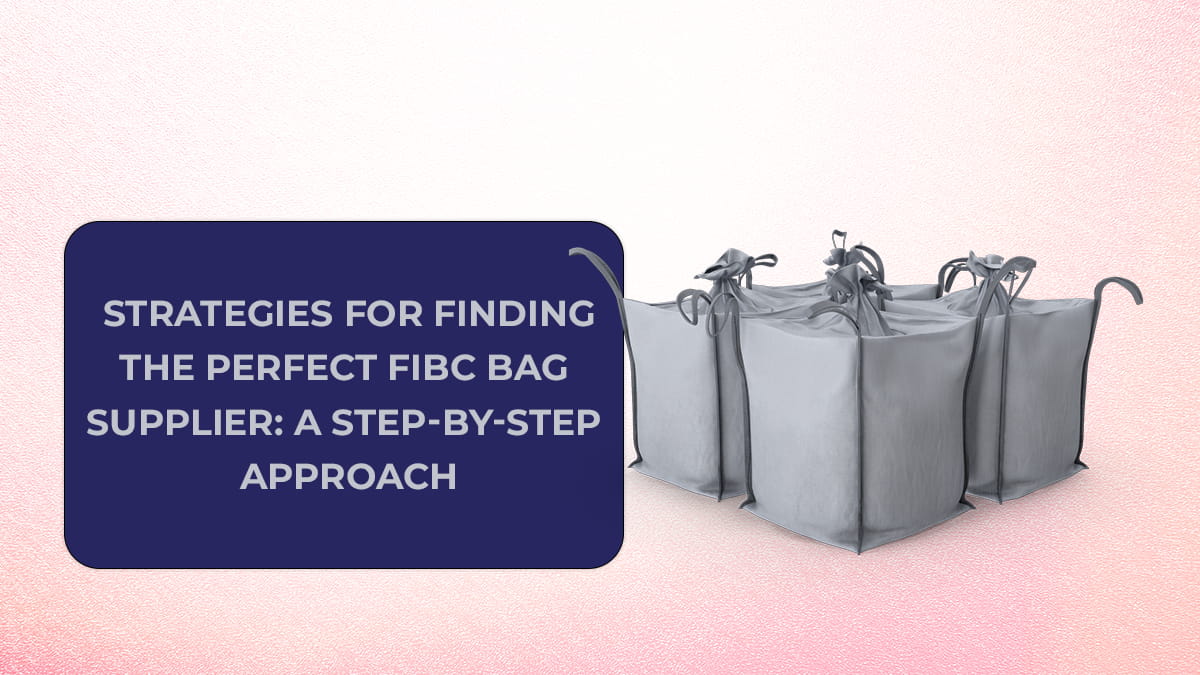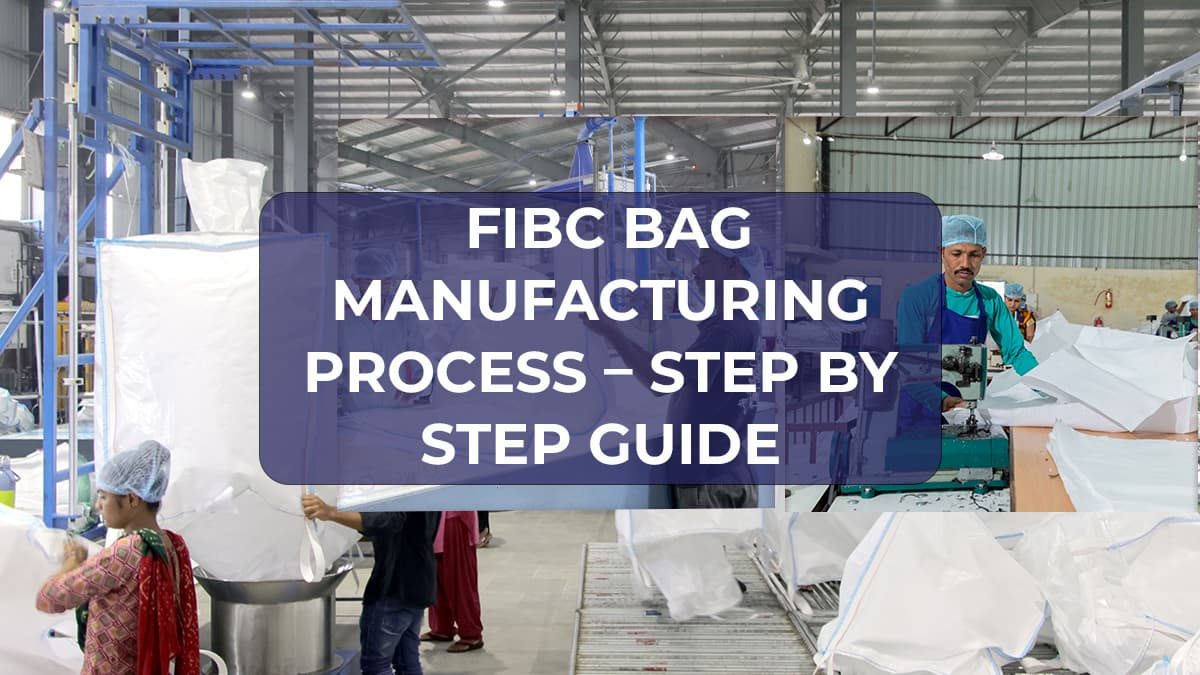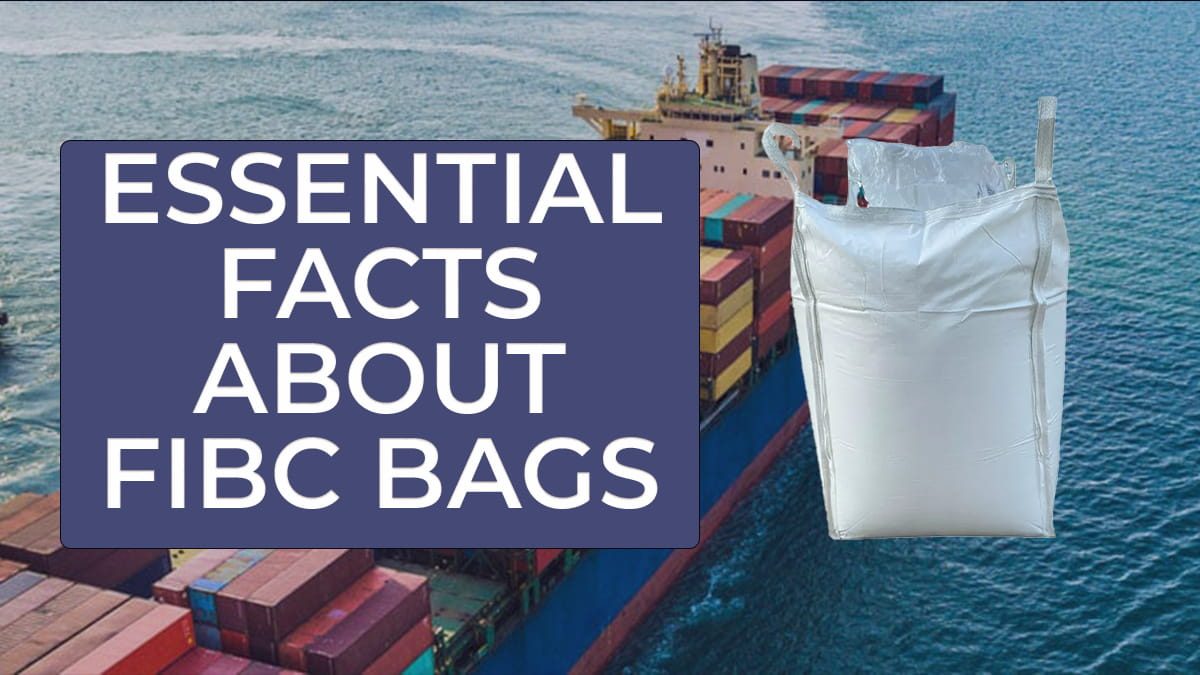Strategies for Finding the Perfect FIBC Bag Supplier: A Step-by-Step Approach
For businesses that rely on bulk packaging solutions, selecting the right Reusable Packaging & Transport Solutions (RPTS) FIBC bags supplier is crucial. The quality and reliability of your packaging directly impact your supply chain, whether you operate in food processing, chemicals, agriculture, construction, or manufacturing.
By taking control of the selection process, you ensure that you partner with a supplier who meets your specific needs while delivering efficiency, durability, and compliance. This guide will walk you through the essential steps to choosing the best RPTS FIBC bag supplier for your business. Ready to streamline your operations with a trusted supplier? Let’s get started!
1. Identify Your Specific Requirements
Before selecting a supplier, you must first understand your unique packaging needs. RPTS FIBC bags come in various sizes, materials, and designs, tailored for different industries.
- Determine if you need bags that are conductive, moisture-resistant, UV-resistant, or food-grade.
- Assess the weight capacity and volume required for your operations.
- Ensure the supplier provides certified bags that comply with industry-specific standards and regulations.
2. Evaluate Supplier Capabilities
Once you define your requirements, the next step is to assess potential suppliers based on their capabilities. Key factors to consider include:
✔ Production Capacity – Can the supplier consistently meet your demand?
✔ Customization Options – Do they offer tailored RPTS FIBC bags to fit your exact needs?
✔ Quality Assurance – What processes do they have in place to maintain consistency and reliability?
✔ Certifications – Does the supplier comply with ISO, UN, or food-grade standards?
✔ Lead Times – Are they able to deliver on schedule to align with your production plans?
3. Assess Product Quality
The quality of RPTS FIBC bags is essential to prevent contamination, product loss, and safety risks. Here’s how to evaluate product quality:
✅ Confirm that the supplier uses premium materials tested for strength, durability, and safety.
✅ Request samples before placing bulk orders to inspect their quality firsthand.
✅ Check if the supplier’s products hold essential industry certifications such as ISO, UN, or food safety approvals.
4. Research Supplier Reputation
A supplier’s reputation provides valuable insight into their reliability and service quality. To assess their credibility:
📌 Customer Reviews & Testimonials – Look for feedback from businesses in your industry. Positive reviews indicate dependability.
📌 Industry Experience – Established suppliers with years of expertise often better understand market demands.
📌 References – Request references and contact existing clients for first-hand feedback.
5. Analyze Cost vs. Value
While price is an important factor, it should be balanced against the value a supplier provides.
💰 Compare prices across multiple suppliers to ensure competitive pricing.
💡 Consider the total cost of ownership, including handling, transportation, and additional services.
🛠️ Look for value-added services, such as design support, technical assistance, and post-purchase customer service.
6. Ensure Sustainability & Compliance
With increasing environmental and regulatory concerns, working with a sustainable and compliant supplier is essential.
🌍 Regulatory Compliance – Does the supplier meet industry safety and environmental standards?
♻ Sustainable Practices – Do they use eco-friendly materials and manufacturing processes?
🤝 Ethical Sourcing – Are raw materials ethically sourced and aligned with responsible supply chain management?
7. Maintain Clear Communication
Building a strong supplier relationship depends on effective communication. Consider the following when evaluating vendors:
📞 Response Time – Do they quickly and efficiently address inquiries and concerns?
🔎 Transparency – Are they upfront about pricing, lead times, and processes?
💼 Customer Support – Do they offer ongoing technical support and troubleshooting assistance?
8. Build a Long-Term Partnership
Selecting an RPTS FIBC bag supplier should be a strategic, long-term decision, not just a one-time transaction. Look for suppliers who:
🔹 Consistently meet your quality and delivery expectations.
🔹 Can scale production as your business grows.
🔹 Invest in continuous improvement and innovation to support your evolving needs.
Conclusion
Choosing the right RPTS FIBC bag supplier requires careful evaluation of your needs, supplier capabilities, product quality, reputation, pricing, compliance, communication, and long-term collaboration potential.
By following these steps, you can find a reliable supplier who will enhance your supply chain efficiency and contribute to your business success. Ready to optimize your operations? Partner with the best RPTS FIBC bag supplier today!





